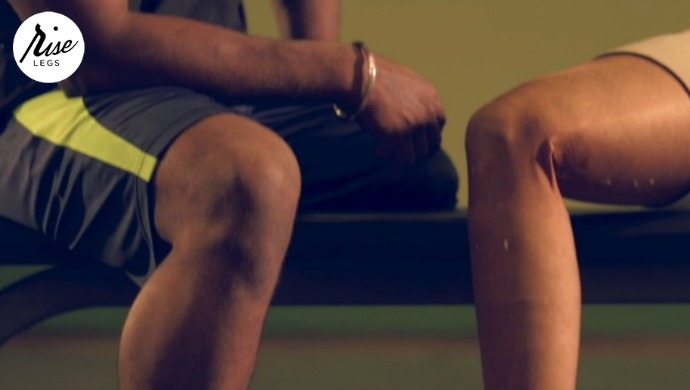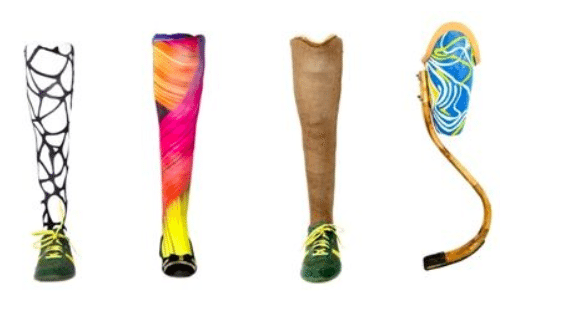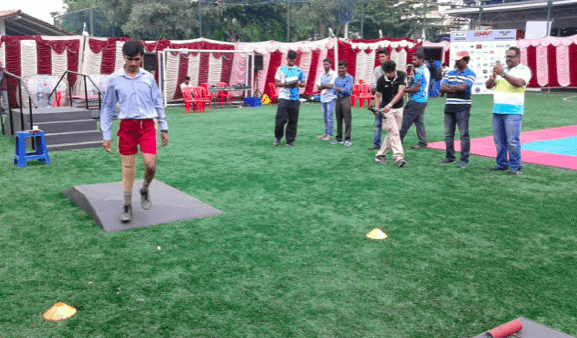With Rise Legs, amputees can have a better quality of life to not just walk longer but run, play and dance, and they are up to four times lighter in weight than similarly priced products

Prajwal Basavaraja is a 25-year-old student pursuing Visual Graphics course in Bangalore. Although he is a leg amputee, he has never let his disability come his way from realising his dream of becoming an athlete.
Nagesh Chowdappa, another amputee hailing from the city, is a Team Lead at Infosys BPO. While he was awarded multiple times for his contributions to the company, his true calling lies in sports and wants to be sports star one day.
Other than the disability (I would call it differently ability), they have one more thing in common; the duo is representing India at Cybathlon tomorrow, a world premiere held in Zurich where people with physical disabilities competed with the newest technical assistance systems in six challenging disciplines.
As they are preparing for the event, a startup in Bangalore is in a state of gratification. It was this social venture that facilitated their participation at the event. Basavaraja and Chowdappa are using the low-cost, light-weight prosthetic leg, made out of sugar cane, designed by the startup, at the event.
“Our startup Rise Legs is on a mission to revolutionise the mobility for amputees with our light, cane-based prosthetic legs,” says Co-founder Arun Cherian, who quit his PhD in Mechanical Engineering at Purdue University (US) to start the firm in 2016.
Cherian adds that conventional low-cost prostheses in India are made of rubber wood or plastic. These are often rigid, heavy and cumbersome, which makes walking and high level activities difficult for the user.
“Some modern prostheses have flexible feet, made of material like carbon-fibre and Kevlar (a kind of synthetic fibre), but these are far too expensive for most amputees in the world. Rise Legs, on the other hand, uses naturally-grown Rattan cane (like bamboo) as the primary material for the distal end of the lower extremity prosthesis. The leg has an integrated pylon and foot device that is cost-effective and lightweight,” he explained.
Cherian is a locomotion buff. As a researcher at University of California, Berkeley, he developed wearable exoskeletal suits to help the paralysed people walk. He also built bio-inspired robots and orthotics at the university. That’s where he grew interest in prosthetic legs and he wanted to develop something that is life-changing.
When he returned to his home state in Kerala in India, he saw different furniture products made of sugar cane. He realised that cane is a perfect material to design artificial legs as it can be bent into different shapes and that it can take a lot of weight. “I realised that human leg, or the leg of an animal for that matter, is a spring of tuned stiffness. And I wondered if you could make a prosthetic leg of tuned stiffness out of cane,” he added.
Don’t miss this: This chemistry professor made 5,000kms of roads in India using plastic litter
Rattan canes are long-stemmed woody vines predominantly used in the furniture industry and to make articles for decoration. Their internal structure of cellulose fibres lends them high mechanical stiffness, making them favourable to elastically store strain energy to make compliant lower limb prosthetics.
Preliminary material characterisation of static loading and unloading tests and fatigue testing were done on a universal testing machine at the Department of Aerospace, Indian Institute of Science, Bangalore.
“With Rise Legs, amputees can have a better quality of life to not just walk longer but run, play and dance. Rise legs are up to four times lighter in weight than similarly priced products. The Rise foot is made of carefully selected, specific species of cane from Indian forests,” Cherian boasted.
Rise Legs work with local artisans in the cane industry to craft these legs based on scientific templates, providing them with better income. The pricing starts at INR 10,000 (US$150). Cherian says the cost can be reduced by removing the cosmetic elements for people who cannot afford them.
The post This startup has built a prosthetic leg from sugar cane for disabled people to walk, dance and Rise appeared first on e27.